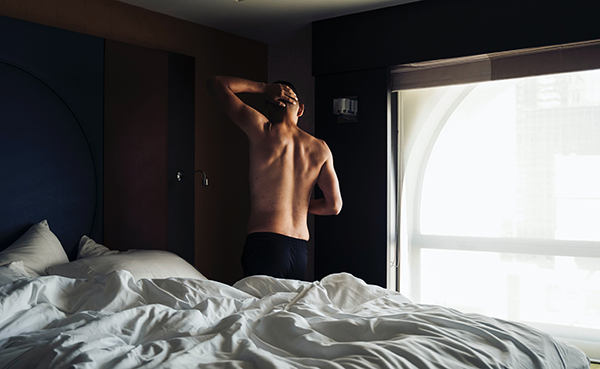Individual Counseling Insights brought to you by California Psychotherapeutic Resources, Inc.
Everyone wakes up with the realization that the day ahead is going to be filled with challenges — once in a while. But if you find yourself waking up filled with anxiety on a regular basis, that’s a red flag. There’s no recognized condition known as morning anxiety, but if it’s a pattern of behavior then you may need to reflect on the root cause.

Writing for Healthline, Sara Lindberg says “If you are dealing with excessive anxiety, worry, and stress in the morning, there’s a good chance you may also have generalized anxiety.” That is an identifiable condition known as generalized anxiety disorder, or GAD. That, says Lindberg, “is characterized by excessive and uncontrolled worry that pervades daily life and occurs frequently for at least six months. People with GAD typically worry about everyday activities such as work, money, family, and health.”
If you’re feeling irritable when you first wake up, or fatigued or have difficulty breathing, these are clues that your morning anxiety may be a sign of GAD. That’s when it’s time for some self-reflection that may help you understand the cause of your anxiety. “The ‘stress hormone’ cortisol is released by the adrenal glands in response to fear or stress,” writes Lindberg. “Researchers have studied the cortisol awakening response (CAR) and have found that cortisol is highest in the first hour of waking for people with an increased level of stress in their lives. This helps explain why you may experience an increase in anxiety in the morning.”
Living with anxiety is no way to live at all. If you recognize the symptoms of morning anxiety or GAD then it’s time to consider reaching out to a professional. Psychotherapy is an effective treatment for GAD, and medications are also used in certain cases. Fortunately, there are also lifestyle changes that can be effective in reducing morning anxiety. Lindberg includes the following changes that may help:
- Getting enough sleep
- Limiting alcohol and caffeine
- Eating a healthy diet that limits processed foods and sugar
- Reducing stress at work and home
In addition, abundant research indicates that physical activity, meditation and deep breathing exercises can help control anxiety. Read a further discussion of techniques to reduce morning anxiety and GAD here.